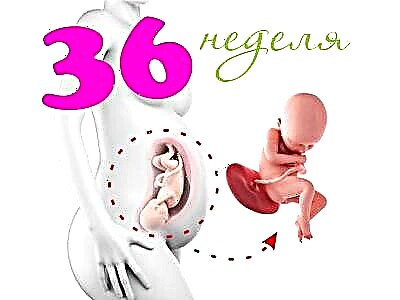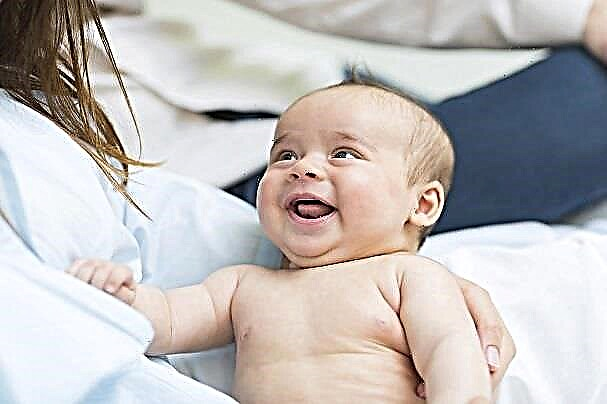
The onset of pregnancy is always a very important event. In order to improve the chances of having a baby, you should know a certain, most favorable time for conception. This article will help you figure out whether it is possible to conceive a child during menstruation, a few days before and after them.

Features of the hormonal background in women
In order to understand at what time it is possible to conceive a baby, you need to touch a little on the biological mechanism of the menstrual cycle.
The menstruation that occurs every month is the beginning of the cycle. The last day before the arrival of menstruation is its completion. Thus, the duration of the menstrual cycle in women is determined.
According to statistics, the average duration of the menstrual cycle is 28-30 days. This is averaged data. In practice, it often happens that the cycle lasts more or less than this period. The duration of the menstrual cycle is a rather individual parameter.

Every woman who is attentive to her health must certainly keep a calendar in which she records the dates of all menstruation. In this case, it is quite simple to understand the definition of the best period for the implementation of conception.
The entire menstrual cycle can be conventionally divided into several stages. They successively replace each other.
- Follicular phase... Its purpose is to prepare the egg to meet with the sperm for future fertilization. This phase begins from the first day of menstruation and ends with ovulation. In this phase of the cycle, there is an increase in the blood of female sex hormones - estrogens.
- Ovulation... Occurs around the middle of the cycle. It is characterized by the release of a mature egg into the fallopian tube for possible fertilization.
- Luteal phase... It successively replaces the follicular and continues from the middle of the cycle to its end. The main goal of this phase is to maintain the corpus luteum of the ovary in place of the matured egg cell that has come out. During this phase, progesterone builds up in a woman's blood, but estrogens also persist.

Menstruation is one of the periods of the follicular phase. At this time, under the influence of female sex hormones, the inner epithelial lining of the uterus is rejected. Thus, the female body prepares every month for a possible upcoming fertilization.
The rejection of the epithelium is accompanied by bleeding, which is called menstruation. Menstruation can last for a different number of days. On average, it lasts about 5-7 days. However, these values are averaged. It often happens that your period lasts 3 or 4 days.
Menstrual blood is slightly different in color from that that flows through the blood vessels. This biological feature is due to the presence of certain enzymes.

Menstruation is a signal from the body that the next menstrual cycle has begun. After the onset of pregnancy, menstruation stops for the entire period of gestation.
During menstruation, according to the literature, a woman loses about 100 ml of blood. In some cases, there may be quite large blood loss. In such a situation, a woman should consult a gynecologist. This can be either an individual feature or a consequence of pathology. Only a doctor can determine this.
Knowing the features of the development of the phases of the menstrual cycle, it becomes quite simple to determine the most favorable period for the implementation of conception. Also, using knowledge about the development of the menstrual cycle, you can calculate dangerous days. At this time, the probability of conceiving a baby is significantly lower.

The best period for conception
The favorable time for fertilization is calculated by almost all couples who dream of a child. By determining the best day to conceive, you can significantly increase the likelihood of pregnancy.
Based on ideas about the course of the menstrual cycle, it becomes clear that The best day for conceiving a child is the day of ovulation itself. At this time, the egg is already ripe and ready for fertilization.

The calculation of the day of ovulation is currently carried out in various ways:
- calendar;
- definition using tests;
- by folliculometry;
- by measuring basal temperature;
- on clinical grounds;
- via an online calculator.
Each woman chooses for herself the most suitable and convenient option for determining the date of ovulation.


The correct calculation of the date of ovulation also makes it easy to determine the favorable time in order to plan the conception of the baby.
It is believed that it is possible to get pregnant quite successfully a couple of days before and after ovulation. At this time, the likelihood of conceiving a baby also remains quite high.

The timing of the most favorable time for conceiving a baby may be different. This is influenced by a huge number of factors:
- the health status of the expectant mother;
- the presence of concomitant gynecological diseases;
- dyshormonal disorders;
- stress;
- negative impact of the external environment and much more.
Such a negative effect on the body can lead to the fact that the ovulation date will simply shift. In this case, pregnancy can occur 5 or 10 days before menstruation. Reviews of quite a few women indicate that despite the calculation of the date of ovulation and the favorable period, their pregnancy came at a completely different time. Such cases are also quite common in medical practice.

Is it possible to conceive a baby during menstruation?
Nature conceived that during the period of menstruation, the conception of a baby is not physiological. So, during menstruation in women, soreness increases during intercourse. The duration of bleeding also increases. Such a reaction of the female body is a signal that it is not necessary to have sex during menstruation.
Protected intercourse can also lead to infection. During menstruation, the inner epithelial lining is rejected. Microbes can easily settle on such a loose surface, leading to infection. Many doctors strongly advise against practicing sex during your period.
For quite a long time, doctors believed that conception during menstruation was completely excluded. Features of the state of the female body and hormonal background significantly complicate the possibility of fertilization. It would seem that everything is simple. No mature egg - no pregnancy. From a theoretical point of view, this is so, but in practice it is quite different.

The many years of experience of obstetricians and gynecologists made them think about why pregnancy can occur during menstruation and immediately after them. The doctors were led to these thoughts by the frequent appeals to them of women, who, using the calendar method of contraception, still became pregnant. It turned out that conception during menstruation is still possible. The doctors found a number of explanations for this.
First, a woman has a pair of ovaries in her body. They must function consistently - first, the egg matures in one, then in another. From the point of view of theory, everything is so. But in practice, there are cases when in one ovary the egg is still maturing and preparing for ovulation, and in the other - ovulation has already occurred. This unplanned ovulation is often called spontaneous or sudden. A variety of reasons can lead to the development of this condition. It is almost impossible to predict the appearance of such spontaneous ovulation.

Reasons for a possible pregnancy during menstruation
A variety of factors can provoke a sudden release of an egg from the ovary.
- One of the most common - various diseases of the reproductive organs... Disturbances in the work of the ovaries contribute to dyshormonal disorders. The disturbed hormonal background can affect the early maturation of the follicle and its release into the fallopian tube before the due date.
- Another possible reason that contributes to the possibility of conceiving a baby during menstruation is irregular sex life. It is believed that in this case, even one sexual intercourse can provoke spontaneous ovulation. During it, quite a lot of different hormones are formed in the female body, which affect the ovary. In this case, if intercourse was unprotected, then the risk of conception exists. Of course, it is significantly lower than during ovulation and a favorable period, but still there.
- The third reason contributing to the fertilization of the egg is preservation of sperm in the uterus... In this case, pregnancy can occur if unprotected intercourse was a couple of days after menstruation. In this case, the sperm can simply "wait" for the egg. However, it should be noted that the viability of male germ cells is not so long. On average, they can persist for 2-3 days and then die.

- The possibility of getting pregnant during menstruation is affected by taking oral contraceptives. As a rule, after their abolition, it is possible to conceive a baby. In this case, the woman's hormonal background changes greatly, which provokes spontaneous ovulation. After canceling long-term contraceptive use, it is very important not to rush to plan a pregnancy right away. It is better at this time to give the body some time to compensate for the general condition.
- It's believed that the risk of conceiving a baby in the first days after menstruation is also quite high in couples who have a regular sex life. Having sex with the same partner for a long time contributes to some physiological changes. So, sperm cells are perceived by the female body as "habitual", which means that a strong change in the vaginal environment does not occur. This contributes to the fact that the viability of the sperm remains rather high, and the risk of conception increases.

Dangerous days for planning conception
The entire period of the menstrual cycle can be roughly divided into several periods. One of them is characterized by a rather high probability of pregnancy and is most favorable for planning the conception of a baby, while the other is dangerous, that is, the risk of fertilization is minimal.
It's believed that About a week before your period, you should not plan to conceive a child. At this time, the risk of pregnancy is quite low. If the conception of the baby is postponed for some reason, then this period is quite favorable for having sex.

However, it is worth remembering that even despite the low probability of conception, the possibility of pregnancy still exists. If the couple is not planning a quick addition to the family, then she should think about choosing the optimal choice of contraception.
For information on whether it is possible to become pregnant during menstruation, see the next video.



